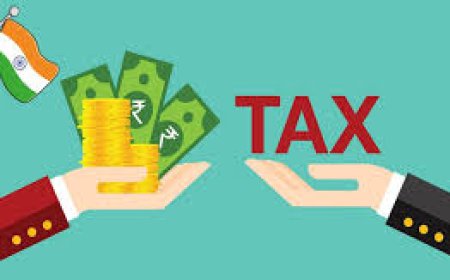Introduction to Capital Gain for kids & adults

INTRODUCTION:
Capital gain refers to the profit or financial gain you make when you sell an asset for a higher price than what you originally paid for it. It is the positive difference between the selling price and the purchase price of an asset.
Imagine you bought a piece of land for Rs. 10,00,000 and sold it later for Rs. 15,00,000. Here's how capital gain works:
Purchase Price:
The purchase price is the amount of money you paid to acquire the asset. In this example, the purchase price of the land is Rs. 10,00,000.
Selling Price:
The selling price is the amount of money you receive when you sell the asset. In this example, the selling price of the land is Rs. 15,00,000.
Capital Gain Calculation:
To calculate the capital gain, subtract the purchase price from the selling price.
Capital Gain = Selling Price - Purchase Price
= Rs. 15,00,000 - Rs. 10,00,000
= Rs. 5,00,000
So, in this case, the capital gain is Rs. 5,00,000.
A positive capital gain means you earned a profit by selling the asset at a higher price than what you originally paid for it. This can apply to various types of assets, including real estate, stocks, mutual funds, or even collectibles like coins or artwork.
In India, capital gains are subject to taxation. Depending on the type of asset and the duration of ownership, capital gains can be classified as short-term capital gains (STCG) or long-term capital gains (LTCG), and they may be subject to different tax rates.
It's important to note that capital gains can also be reduced by taking into account certain exemptions, deductions, or indexation benefits as per the applicable tax laws in India.
Understanding capital gains helps individuals and businesses evaluate the profitability of their investments and make informed decisions regarding buying, selling, or holding onto assets. It's important to consult with a tax advisor or financial professional to understand the tax implications and any applicable exemptions related to capital gains in India.
Examples for Kids:
Trading Cards:
Imagine you collect trading cards and you buy a card for Rs. 100. After some time, the value of the card increases, and you sell it for Rs. 200. The Rs. 100 difference is your capital gain.
Saving Piggy Bank:
Let's say you have a savings piggy bank where you deposit your pocket money. If you put Rs. 10 in your piggy bank and later withdraw Rs. 15 because the value of the money increased, the Rs. 5 difference is your capital gain.
Collecting Stamps:
If you collect stamps as a hobby, and you bought a rare stamp for Rs. 50. After a few years, the value of the stamp rises, and you sell it for Rs. 100. The Rs. 50 difference is your capital gain.
Selling Handmade Crafts:
Suppose you make handmade crafts like bracelets. If you make a bracelet for Rs. 20 and sell it for Rs. 50 because the demand for your craft increases, the Rs. 30 difference is your capital gain.
Pokémon Card Trade:
If you trade a Pokémon card with a friend and you receive a card that is worth more than the one you gave, the difference in value represents your capital gain from the trade.
Examples for Layman Adults:
Real Estate:
Consider buying a plot of land for Rs. 10 lakhs and selling it later for Rs. 15 lakhs. The Rs. 5 lakh difference between the buying and selling price is your capital gain from the real estate transaction.
Stock Investment:
Suppose you buy shares of a company for Rs. 100 each, and after some time, the share price increases to Rs. 150. If you sell the shares at Rs. 150, the Rs. 50 difference per share represents your capital gain from the stock investment.
Mutual Fund Investment:
Let's say you invest in a mutual fund by purchasing units at Rs. 10 each, and the value of each unit grows to Rs. 15. If you sell the units at Rs. 15, the Rs. 5 difference per unit is your capital gain from the mutual fund investment.
Capital gain refers to the profit or financial gain you make when you sell an asset for a higher price than what you originally paid for it. In simple terms, it's like earning more money from selling something than what you spent to buy it. In an Indian context, capital gain is important because it helps individuals and businesses assess the profitability of their investments. It applies to various assets like real estate, stocks, and mutual funds. By understanding capital gain, we can make informed decisions about buying and selling assets, plan for taxes, and work towards building wealth in India. It's like earning a reward for making smart investment choices and selling assets at a higher price, which contributes to our financial well-being.
What's Your Reaction?
























































